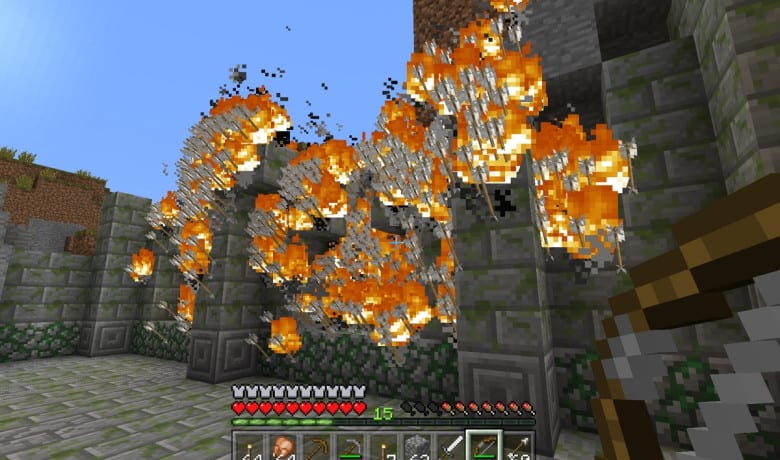Millions of kids around the world play Minecraft, and it didn’t take long for adults to notice something: It has educational value. With Microsoft’s MinecraftEdu leading the way, more schools are using Minecraft in classrooms, having their kids experiment with science and math on the screen, or encouraging them to build historical settings or scenes from books. But there is one aspect of Minecraft education that I think can be discussed more: Minecraft and literacy.
Tech writer Clive Thompson wrote in Wired, “Games, it seems, can motivate kids to read—and to read way above their level. This is what Constance Steinkuehler, a games researcher at the University of Wisconsin-Madison, discovered. She asked middle and high school students who were struggling readers (one 11th-grade student read at a 6th-grade level) to choose a game topic they were interested in, and then she picked texts from game sites for them to read—some as difficult as first-year-college language. The kids devoured them with no help and nearly perfect accuracy.”
Minecraft doesn’t have a lot of reading in it (unless you mod the game to make it that way), but the internet and bookstores show a booming display of Minecraft-related websites and books. Kids can look up how to brew a potion online or get these details from a nonfiction how-to book. At the same time, novels and comic books star Minecraft characters or take place within the game.
My experience as an author
I write adventure novels for children 7-12 that take place as if Minecraft is real, and I’ve seen the way it lights up kids who usually would rather be in front of the console than have a book under their nose. I talk with schools or libraries, either in person or through Skype, showing them how I started writing at a young age and how I turned that into my career. The first thing I say to a classroom is usually, “Who here likes Minecraft?” Nearly all the hands go up. When I tell them I write books about an 11-year-old boy who lives in Minecraft, they want to read it. They demand to read it. I hear from parents all the time who say, “My child doesn’t like to read, but they can’t put your books down.” The Minecraft angle is what grabs them in the first place, and then in my books they’ll find fast-paced action/adventure, chapter cliffhangers, plot twists, and characters who discuss real issues, like the fear of going to a new school or of being cyberbullied.
I see the power of literacy when we can get kids excited about reading. And I remember being a kid and being told what books to read by teachers and other well-wishing adults, and I remember quite a few of those pre-selected books did not interest me, even though I loved to read. The issue is that sometimes the kids are being told what they’d like to read, rather than asking them what they like and then finding books to fit that. I see kids who find a book that clicks with them, and they think, “This is reading? But this is fun!” They’ll move on to more books, maybe even the books the adults originally recommended, but then it’s in the kids’ hands and they feel empowered by their reading ability and feel connected with certain characters and stories.
Indeed, it was a love of stories that made me good at spelling, not spelling tests – I learned to spell better from reading and writing than I did from any quizzes. It was a love of reading and writing that helped me through hard times, that let me know I wasn’t alone. A love of reading can bridge communities, can help in education, can help in careers, can help in just general passion for life.
The power of Minecraft
I’m not the only author making books for Minecrafters, nor is Minecraft the only video game out there with books. For kids who are into video games but hesitate about books, this can be a way to reach them, if we can find their interests. Beyond video games, whatever their interest is, there will be books to match up with them. So when I hear about teachers using Minecraft in the classroom, I like to talk to them about going beyond math and science and using literacy as another angle to gaming education. I also remember being in elementary school and getting writing assignments, and how the more specific the assignment, the less well I did in it. I would go home and write, but in school, I often froze up.
But if teachers encourage kids to write about what interests them (again, Minecraft or whatever else) they might find their students opening up. So many of them are already creating worlds on the screen, so why not create some worlds on the page as well? Because Minecraft encourages imagination, education around it ought to encourage imagination too. It’s by thinking outside the box (no pun intended for this boxy video game world) that people make new discoveries and come up with new, better ideas. Why not use Minecraft however it can be used to encourage this?
Danica Davidson is the author of Escape from the Overworld and several other books, all of which star 11-year-old Stevie, a boy from Minecraft.

